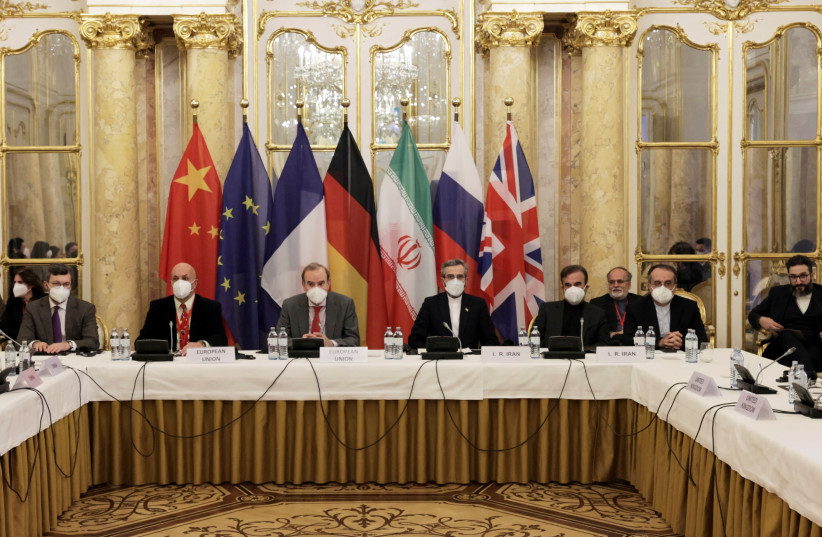The acceleration of interactions in the covert and overt strategic conflict between the US on the one hand and China and Russia on the other suggests many conclusions about the negotiations in Vienna.
Western observers have called it one of the West’s biggest political defeats of 2021, failing to extract even a single concession from Tehran.
They believe that it is now impossible to freeze Tehran’s plans to expand its nuclear capabilities.
In the current strategic situation, Iranian negotiators are indirectly supported by the atmosphere of conflict created by the crises in Ukraine and Taiwan.
Tehran is aware that the US faces a real strategic conundrum in terms of options for dealing with these two crises, which the White House believes are more closely linked to US interests.

Some Western observers believe the US withdrawal is directly related to the instructions of Special Envoy Robert Malley, who is leading his country’s negotiators in Vienna.
They believe that he is proceeding lackadaisically and even making unwarranted concessions to Iran in order to bring the negotiations to a successful conclusion.
However, reality and historical experience show that it is difficult to proceed according to this much-publicized scenario. The dilemma is not only not to threaten to withdraw from the negotiations or to tighten sanctions against Tehran if Iran sticks to its hard line.
Rather, it lies in other important factors, such as the lack of a shared vision among the international powers involved in the negotiations.
It is difficult to foresee that China and Russia, for example, could support the US position in any way.
In addition, there is disagreement, albeit limited, between Europe and the US on how to manage the crisis.
Moreover, at this juncture, the US should reconsider its strategic priorities in light of changes in the international environment following the coronavirus outbreak, China’s strategic rise and readiness to defend its interests in Taiwan and other potential spheres of influence.
Against this background, it is no secret that Iran’s options in the Vienna negotiations are clearer than those of the United States. Tehran is trying to buy time or get maximum concessions from the US. American negotiators are therefore under intense pressure.
The heaviest psychological burden is always on the party suffering from limited options and latitude in negotiations. Iran appears to be the main beneficiary of the complex US-Russian relationship. There is also no denying that Tehran benefits from the US strategic decline in the Middle East.
This development has prompted some US allies in the Gulf region to reduce tensions with Iran in order to mend fences and maintain the security and stability they need to accelerate their development plans.
The changes in the strategic environment resulting from the outbreak of the coronavirus and the resulting new context that is beginning to emerge as the basis for a new world order also appear to have benefited Iran. On the other hand, the United States appears to face difficult strategic options in the event of a failure of the negotiations in Vienna.
In that case, Washington would have to impose new sanctions on Tehran to get Israel to restrain itself in the face of an acceleration of Iran’s nuclear capabilities, or give its ally the green light to target Iran’s nuclear facilities. The latter scenario, however, has complex implications that could require a change in US plans not only in the Middle East but around the world to implement its unwavering commitment to protecting Israel’s security.
The US may prefer a diplomatic solution to the Iranian nuclear problem to other options. The White House believes that an agreement is definitely a better strategic option than no restrictions on Iran’s nuclear efforts. But in reality, the success of this bet depends on Iran’s actual intentions regarding the weaponization of its nuclear capabilities.
In any case, a failure of the Vienna negotiations is the worst news of all for the White House. It is likely to upset the calculations of US strategic planners. It puts the US in a critical situation that could cause it to change its plans regarding Iran in order to regain a position and influence in the world that it is gradually losing.
The writer is a UAE political analyst and former Federal National Council candidate.
